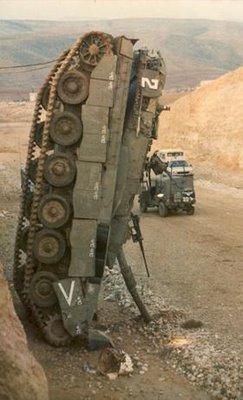Concern mounts that this is a war Israel is not going to win

Jonathan Pearlman in Jerusalem
August 2, 2006
ANALYSIS
AS HEZBOLLAH'S missiles continue to rain across the Galilee, the Israeli Prime Minister, Ehud Olmert, faces growing concerns that Israel may be on the verge of losing the war.
In a blunt televised pledge on Monday night, Mr Olmert warned that a ceasefire would be premature and insisted Israel would continue fighting to eliminate Hezbollah's long-term military threat.
Unlike his first national speech on the conflict two weeks ago, which paved the way for diplomatic efforts, this address sounded like a fresh declaration of hostilities.
But the slowness of the campaign and the inability to prevent Hezbollah firing Katyusha rockets has forced Israel to flip the traditional course of war in which combat precedes diplomacy.
The prominent Israeli analyst Zeev Schiff , whose daily commentaries are allegedly delivered in Arabic each morning to Hezbollah's leader, Sheik Hassan Nasrallah, yesterday accused the Government of failing to achieve its aims and mishandling the campaign.
As Schiff pointed out in the Israeli newspaper Haaretz, in the first Lebanon war in 1982, Israeli ground troops had seized all of southern Lebanon within 48 hours. This time, it has taken three weeks to defeat a handful of Hezbollah strongholds within a few kilometres of the border.
Schiff predicted the war would last "much longer" and the ground campaign would have to be rapidly expanded to pave the way for the entry of an international force.
Amid fears of repeating the errors of its ill-fated, large-scale invasion in 1982, Israel has insisted its ground incursions did not target Hezbollah's rocket launchers and were limited to preventing cross-border attacks.
Although Israel says it has reduced Hezbollah's long-range missile capability, killed several leaders and reduced the group's presence at the border, its air campaign has not ended the threat to residents in northern Israel. On Sunday, Hezbollah fired a record 140 rockets across the Galillee.
The advancement of the ground campaign as far as the Litani River would return Israel to the security zone it occupied until 2000 and mark a serious reversal from the Government's initial announcement that there would be no big ground invasion.
From the outset Israel has repeatedly insisted that the war will take an unspecified number of "weeks". It mantained that line yesterday as the war neared the one-month mark.
While Israel has been careful to avoid fears that this campaign will be associated with the ill-fated first Lebanon war, there are increasing comparisons with the 1973 Yom Kippur war, which caught the Israeli Army off-guard, caused heavy losses and lasted about three weeks. That war was perceived to have ended in a stalemate and restored confidence to Israel's Arab neighbours after their resounding defeat in the Six Days War in 1967.
After the 1973 war, the army's chief-of-staff, David Elazar, was forced to resign. In recent days, the present chief-of-staff, Dan Halutz, has been photographed attending hospital for abdominal pains. If the war ends now, these images may come to signify a much deeper and more comprehensive weakness.
Link Here




0 Comments:
Post a Comment
<< Home